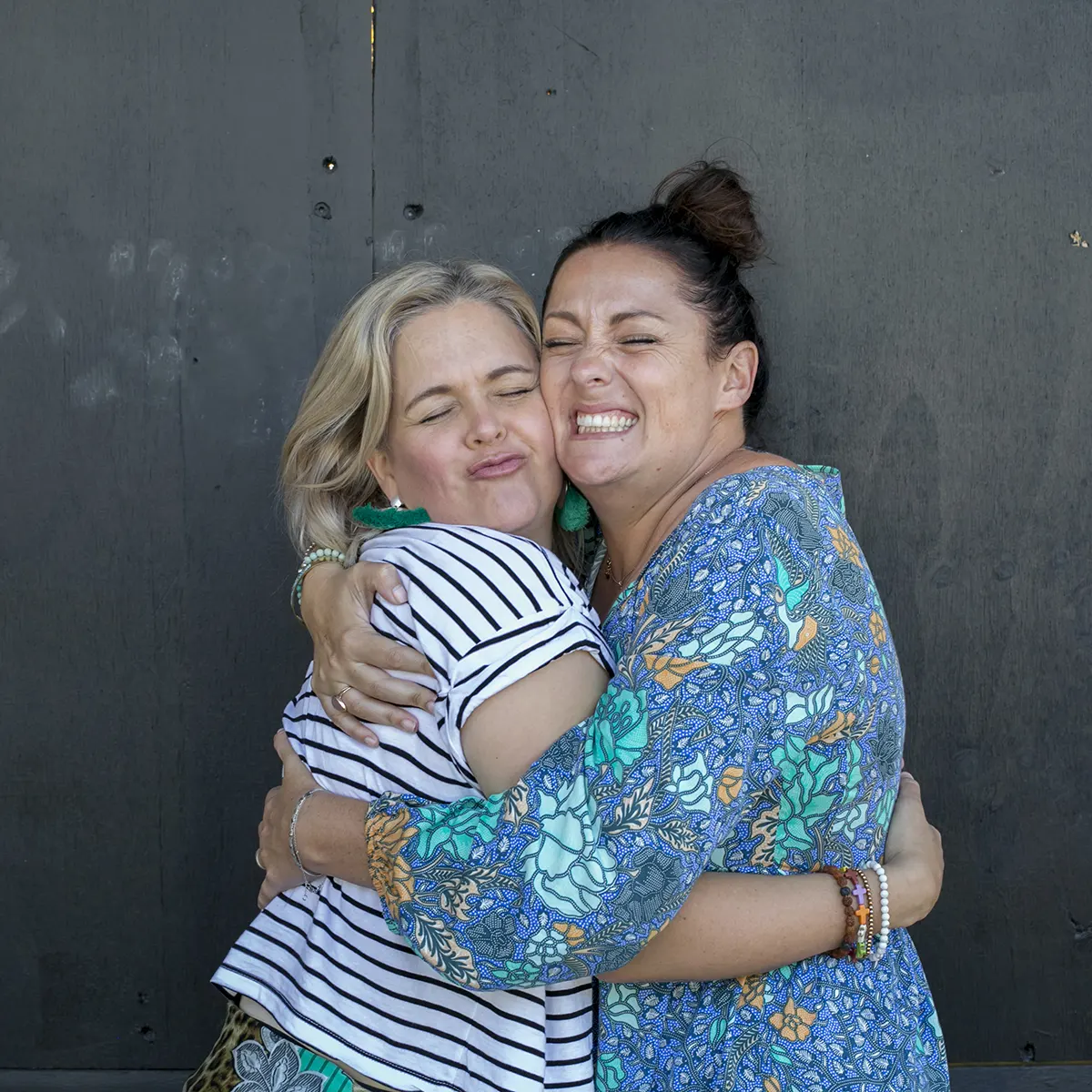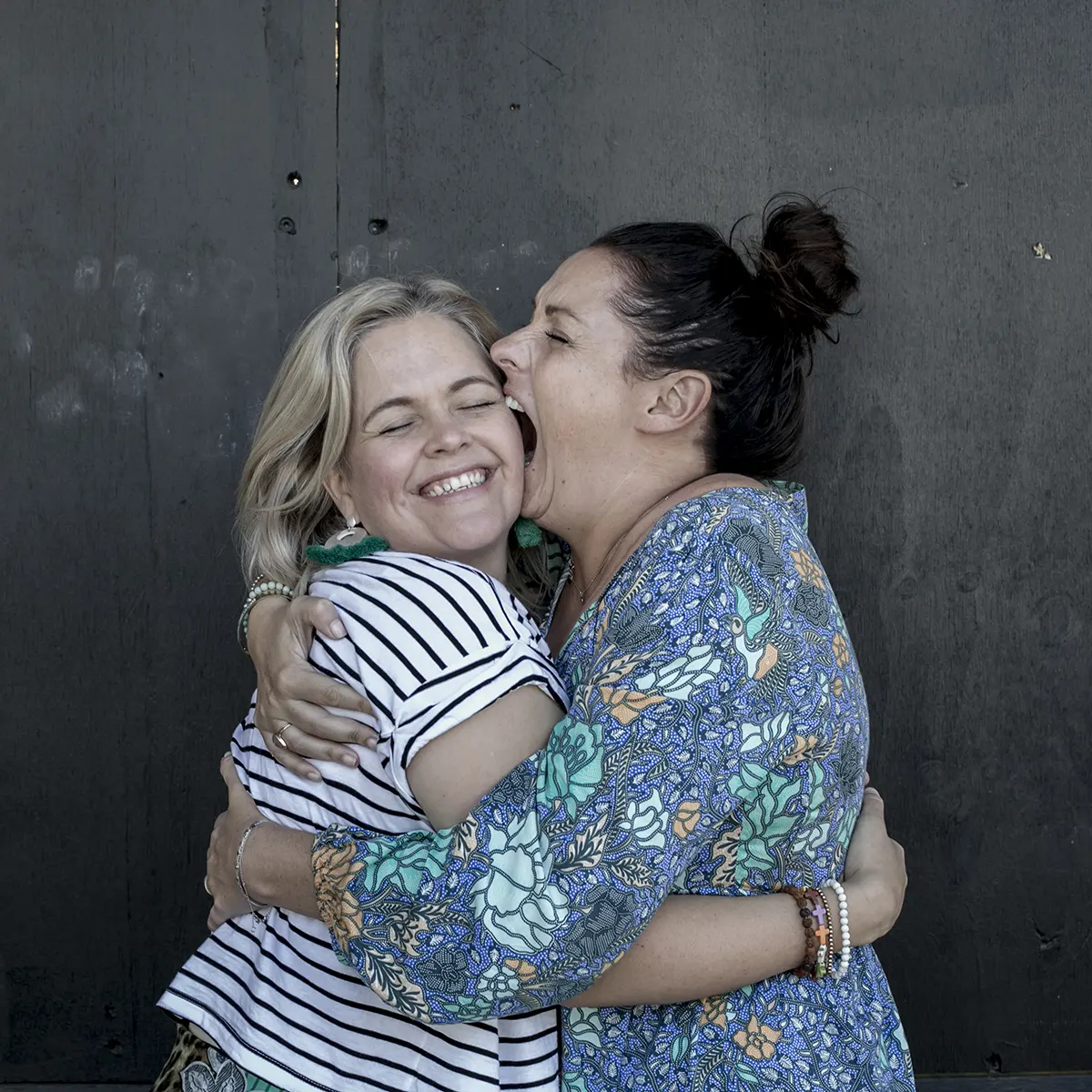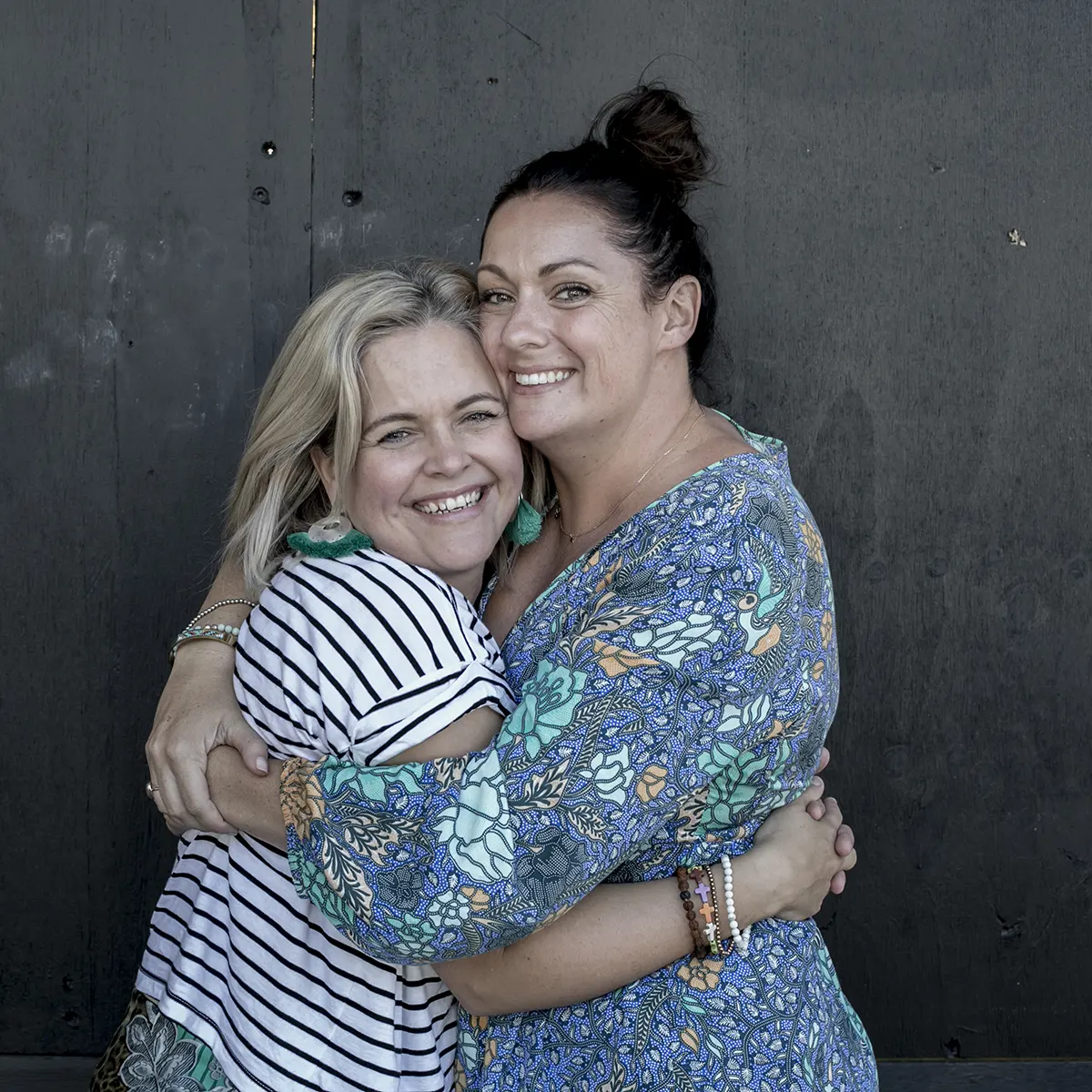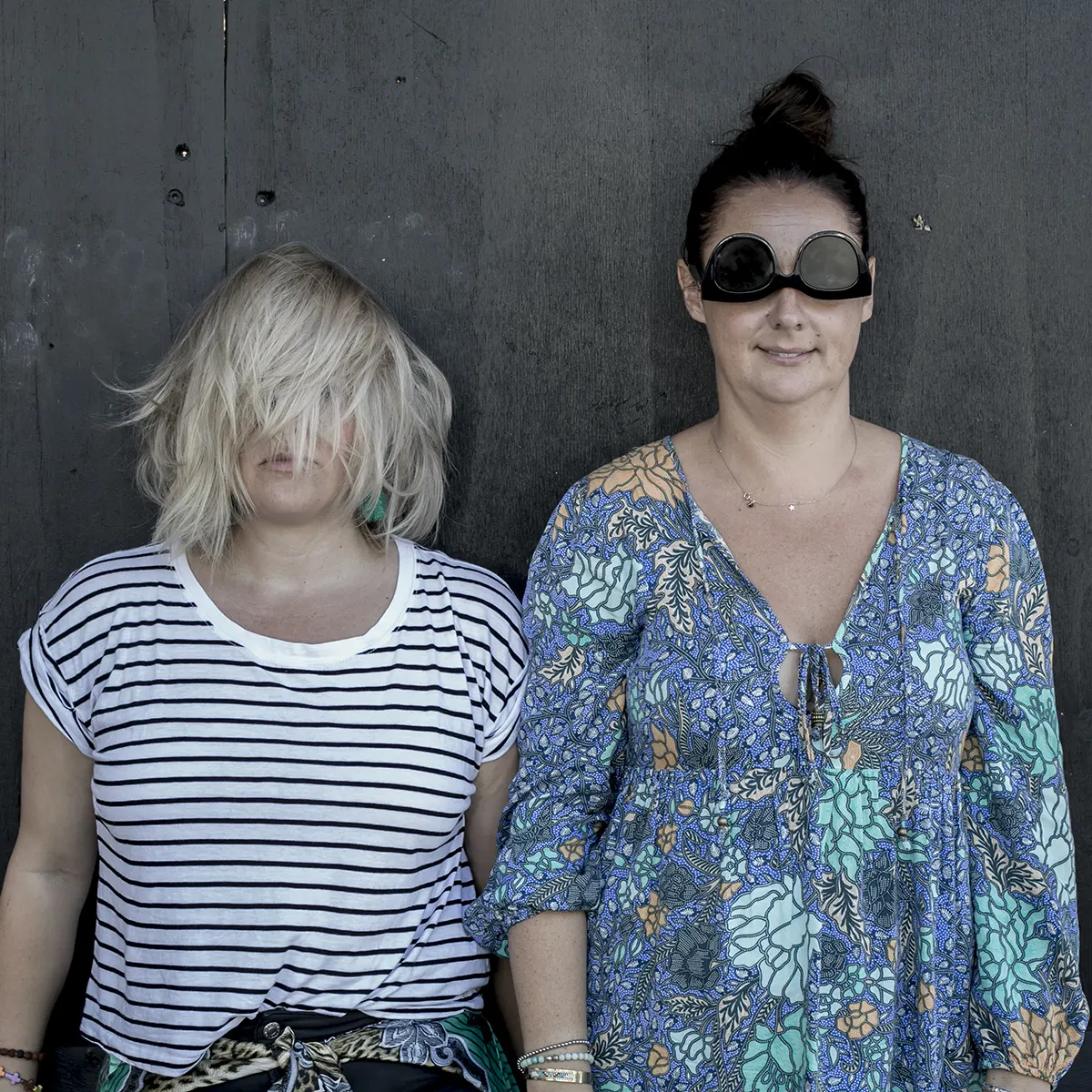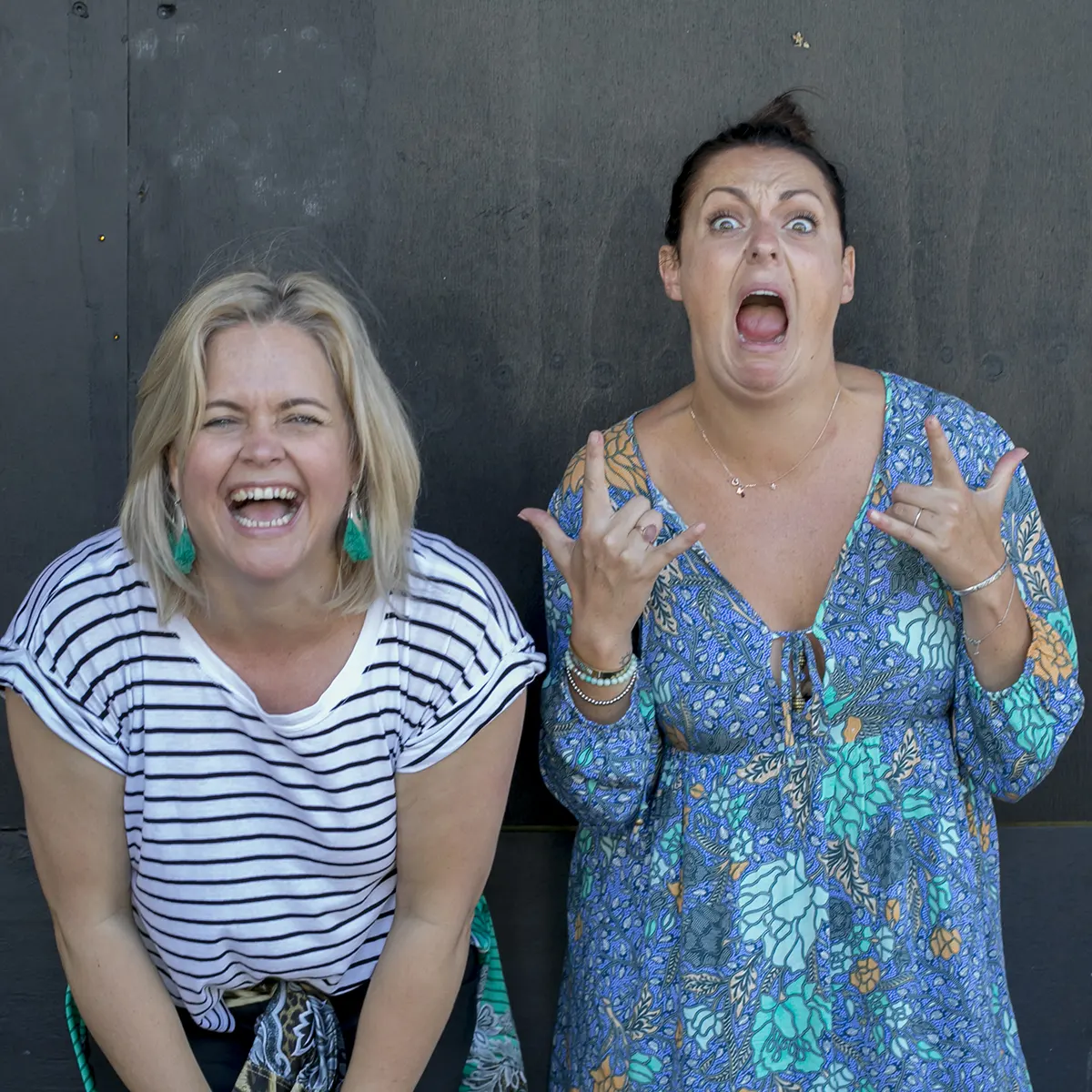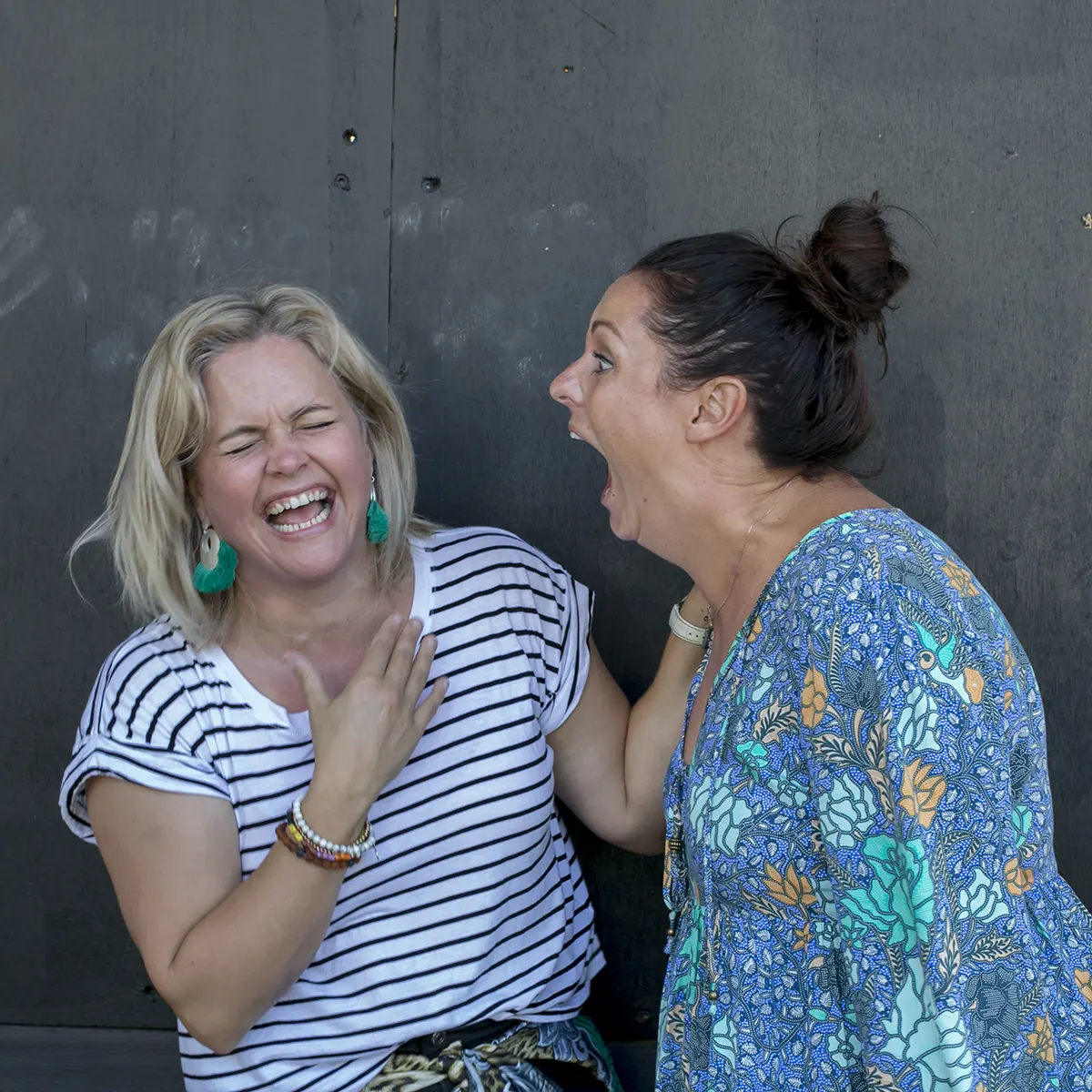She starred in and was an executive producer of the Embrace Kids documentary, and she’s one of our absolute favourites for feel-good Instagram content. With over 9.5 million followers worldwide, Celeste’s viral recreations of celebrity photos and videos are a massive hit! People from all walks of life love her parodies for their hilarious, down-to-earth take on the often unattainable world of celebrity culture. But there’s more to Celeste’s work than just laughs — it carries a powerful message about self-acceptance on every level.
Celeste’s story
Embracing our bodies is about more than just appearance. The Body Image Movement champions celebrating all types of differences, focusing on the unique gifts these differences bring. Celeste herself is a shining example of this. Diagnosed with ADHD at sixteen, she embraced it and turned it into a strength, using her unique perspective to build a stellar career on stage and on screen.
“I’ve got ADHD — I was diagnosed when I was sixteen, so school was quite hard for me, but I found my jam early. I was like, right, I’m funny, I like acting, and I love entertaining people — so drama room, here I come — and I really pushed myself into that world,” she says.
The power of self-acceptance has only grown for Celeste as she’s navigated adulthood and built an incredibly successful career. Her genuine confidence not only resonates with those around her, but it also connects with her audience — even people who’ve never met her feel the impact. It’s no surprise she’s become a trusted voice in challenging beauty standards and promoting body acceptance.
“I’ve never really seen how I look as something that is bad or something that I need to explain. How I look makes up a very small part of who I am,” Celeste says.
“I say to kids don’t ever be scared to be different. Forget that whole pressure to conform and fit into the box. Beauty is diversity. No one else can do you the way you can do you — no one else can do me, I tell you now!”
How it began
When Celeste began doing social media parodies of celebrities, her initial intention was to make people laugh, but it was quickly embraced for the way that it challenged the way that unrealistic portrayals can make us feel like we don’t measure up, especially for women and girls.
“The Instagram world moved very quickly into making fake images seem real and attainable. My sister and I used to send each other photos of models or influencers in hilarious or scantily clad outfits with a caption saying ‘school pickup’ — and you’re like, that’s not what you look like at school pickup! This is what people look like at school pickup,” Celeste says.
“It’s the overarching idea that our bodies, in particular girls, need to look a certain way, and that’s what I’m fighting against. I will never ever support anything that makes women feel that they need to look a certain way to feel a certain way. How we look and how we feel are very different things. I’m all about how you feel and then how you look after that, whatever, not the other way around — not ‘if you look like this, you’ll feel like this’. That’s BS!” Celeste says.
Celeste’s hilarious parodies quickly went viral, striking a chord with people worldwide who were tired of feeling ‘less than’ because of unrealistic portrayals of everyday life on social media.
“I remember the one that made it go bananas was Kim Kardashian in her undies on a dirt pile. So, obviously, I did that — and then, the news got a hold of it, and it went gangbusters. I remember getting 50,000 followers in a few hours. Since then, it’s been crazy — it’s been awesome.
“But I don’t want to buy into ‘if I get likes, then I’m better at what I do’ or anything. The main thing I look at is how people are sharing it, and that excites me because I know that it’s resonating with people. Everyday people who go, ‘ah, that’s me,’ and they share it with their friends. That’s what I really like about it,” Celeste says.
While some might think Celeste’s parodies poke fun at celebrities, she’s quick to clarify that her real target is the beauty industry — not the individuals.
“It’s the industry that wants us to hate ourselves. Models have to make a living, and I actually have a lot of time and respect for the editorial world. But it’s Instagram, with its filtered, ‘everyday’ posts that are anything but real that I wanted to call out.”
These days, Celeste is wholeheartedly embracing the opportunity to use her voice to spark real change.
“I actually get people coming up to me saying ‘You look great. I don’t know why you’re comparing yourself to these models’. And I’m not comparing myself — I’m just showing an alternate body that we don’t always see because at the end of the day, how I look, and my body is the least interesting part about me,” she explains.
“I don’t think we should be worried about our bodies and how we look. I think we should be focused on being kind to people. It’s very important to look after each other and we all rise together — that is what’s important.”
Other side of the coin
Interestingly, the response from within the industry has been overwhelmingly positive. Many celebrities even ask Celeste to parody their posts, including supermodel Miranda Kerr, who reposts parodies of her and messages Celeste about them.
“She’s such a good sport! When I see that the person that I’ve parodied has liked it, I go cool because I want to be in it with them.”
Celeste also acknowledges that people in the industry face the same pressures. “It’s not the individuals who are making us feel this way — they often struggle with these unrealistic expectations, too. Many have built careers around their looks and feel immense pressure to maintain that image just to stay relevant.”
Next generation
As Celeste’s voice for change has grown, she’s become even more passionate about helping younger generations, who are inundated with unrealistic portrayals online.
“It’s so important for us, and especially for our kids, to know that there’s a multi-million-dollar industry fuelling this. We can’t stop it dead in its tracks, but we can definitely be more aware, and help our kids be more aware that it’s not real. Everyone looks different — and that’s what our kids need to see,” Celeste says.
She’s a big advocate for teaching kids how to shield themselves from harmful messages on social media. “Kids need to know they have control over what they see. You can unfollow things that don’t make you feel good — or mute them if you don’t want to offend anyone. Take back the power! And teach your kids to unfollow anyone who makes them feel bad — it’s really fun! I fill my feed with things that lift me up,” she shares.
Beyond the laughs she brings with her humour, we’re so grateful for Celeste’s impact in helping free generations from harmful body image messages. She’s an incredible artist, and we’re proud to call her a friend of the Body Image Movement.
For more Celeste humour, head to www.instagram.com/celestebarber
